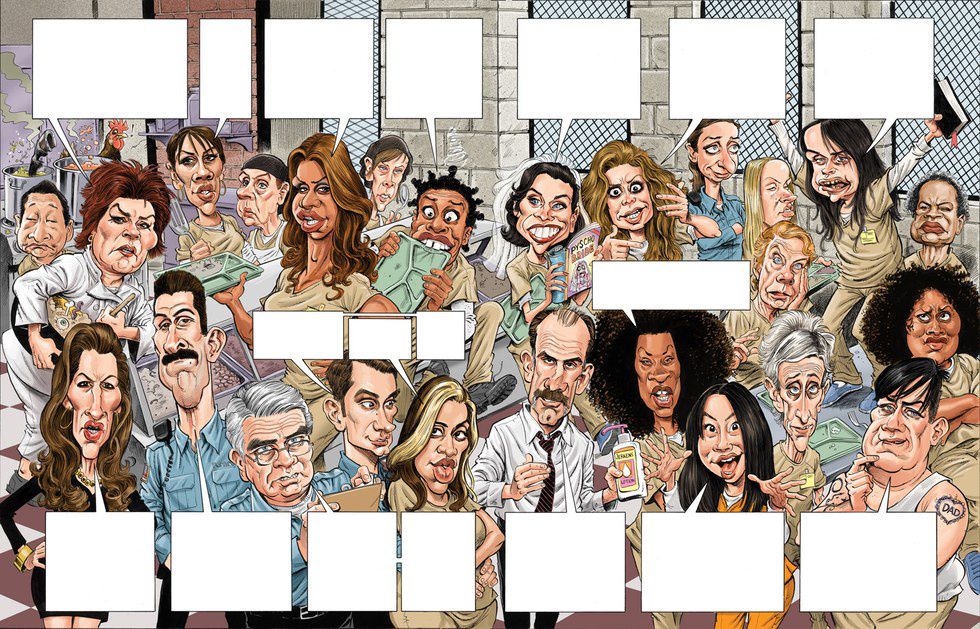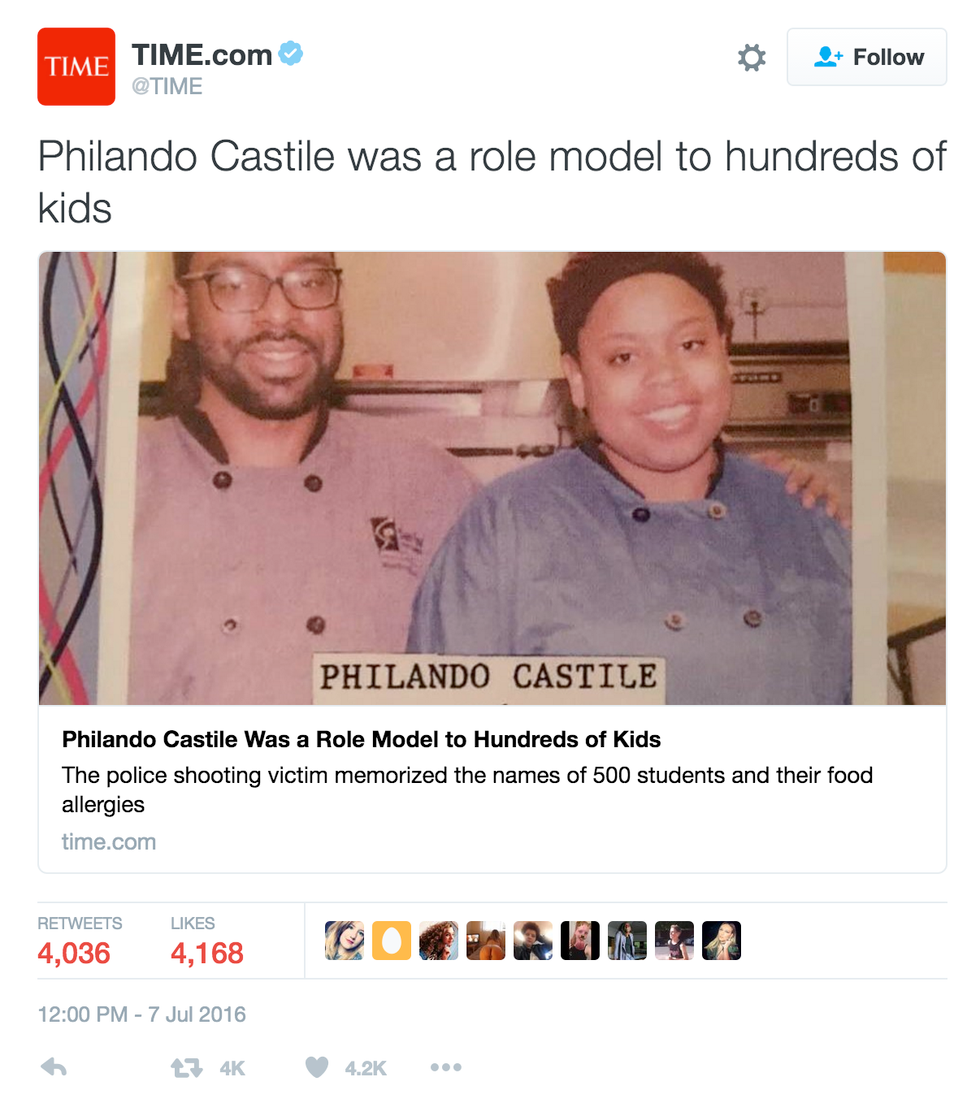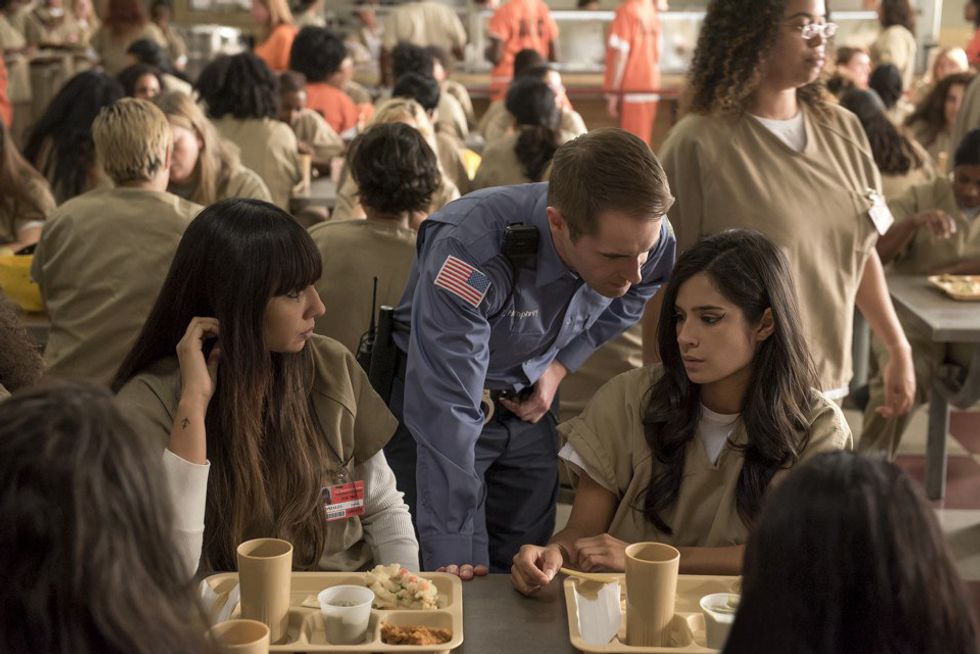If you haven’t seen the new season of Orange is the New Black yet, then I suggest you get on it. The latest batch of episodes from the hit series is more funny, poignant, emotional, and thought-provoking than the series has ever been. It’s like the producers of the show said to themselves, “Now that we’ve got their attention, let’s talk about some real issues.” It gets real political and not in the Frank Underwood kind of way.
OITNB is a caricature of real life much in the same way that Grand Theft Auto V features a living and breathing Los Angeles that parodies American culture in such a manner that nobody really questions how over the top it is. Like any good caricature, even though the features are wildly exaggerated there is no mistaking who the drawing was inspired by. So I wanted to zero in on a couple moments where this Netflix satire felt a little too close to home in light of the Philando Castile and Alton Sterling shootings.
If you couldn’t tell by now, there’s going to be some spoilers from the fourth season, but I’ll try my best to keep it general enough where nothing in the story legitimately feels ruined. Scroll down if you want to continue. You’ve been warned.
The fourth season of "Orange is the New Black" tackles the politics of turning a prison into a business and explores what happens when the people hired to maintain order instigate chaos while everyone else turns a blind eye. Every person in the show is terrible in their own way except for the big-hearted Warden Joe Caputo whose tireless efforts to make Litchfield County Jail a livable place often end up making things worse for the inmates. Even still, Caputo isn’t without his faults either.
Near the end of the season, a guard accidentally kills a major character while trying to detain her. The body is then left on the floor in the cafeteria while the inmates grieve and lawyers think of a way to spin it to the media. For an episode and a half, everybody tried to throw the blame onto someone else’s shoulders, and more often than not it was the limp shoulders of the dead victim. Sound familiar?
Alton Sterling was shot by a police officer “point black” last week, as was Philando Castile just a day later. Two black men were murdered at the hands of sworn protectors, one for selling CDs and the other for having a busted taillight with his girlfriend and her 4-year-old daughter in the backseat. These stories are more nuanced than this, but not by much, and if you actually do go down that rabbit hole the realities of these tragedies are even more horrific.
Like these men, the character that died at the end of Season 4 was a very respected member of the community. The lawyers couldn’t find any fault against her. Her family had no history of crime, she was in jail for a non-violent offense, and she didn’t have a single enemy on the inside. She didn’t deserve to die and when the lawyers realized this, they tried to spin the story in a way that would make people sympathize for the guard. If you replaced her with Philando, the lawyers from OITNB would be saying, “He was a straight A student in high school with no criminal record. He works at a school and all the kids love him. He’s an angel! What are we going to do?!”
At no point did the prison powers show any remorse for the victim; conversely they were hell bent on protecting their own image and diverting attention away from their own mistakes. Isn’t it interesting how this time around the names of the policemen involved in the shooting aren’t plastered all over the news? That’s some damn good PR.
Earlier in the season a different guard, we’ll call him Mr. Jerkface, forces an inmate to perform a very demoralizing and physically harmful act. When she is seen vomiting after the fact by two other guards, the guards wondered what was wrong with her. The male guard said that he saw Mr. Jerkface taking her some place alone. The female guard wondered if Mr. Jerkface did anything to her before the male guard said to let it go and that it was important to always look out for each other. There was a moment where you could see the female guard wrestle with her own intuition before she justified not digging deeper. For all we know Mr. Jerkface could have just been giving her some water, she reasoned not fully convinced of her own words.
I think it would be hard for anyone to confront their own coworkers, especially in a high-stakes job like a prison guard or a police officer. I understand where this “ride together, die together” mentality comes from. These jobs can be tough and only your coworkers really understand what you have to go through at work. Yet we have a major issue where there is a culture of defending those even when they are at fault which only perpetuates the feelings of “us vs them.”
If "Orange is the New Black" can teach us anything about the real world, it’s that black lives only matter as long as a white life isn’t on the line. And that’s not me addressing the elephant in the room; people have been singing that tune long before the Black Lives Matter movement started. I’m simply addressing the bodies on the floor.






















